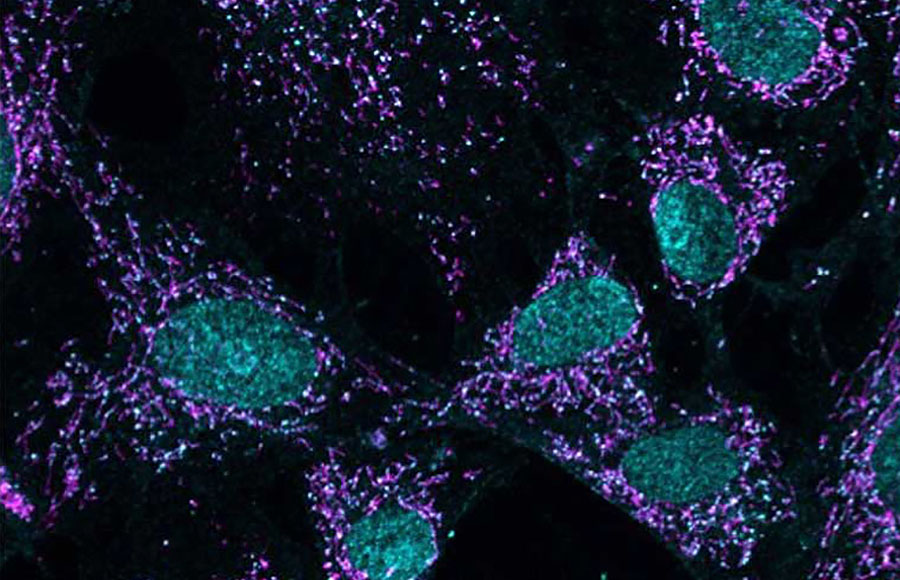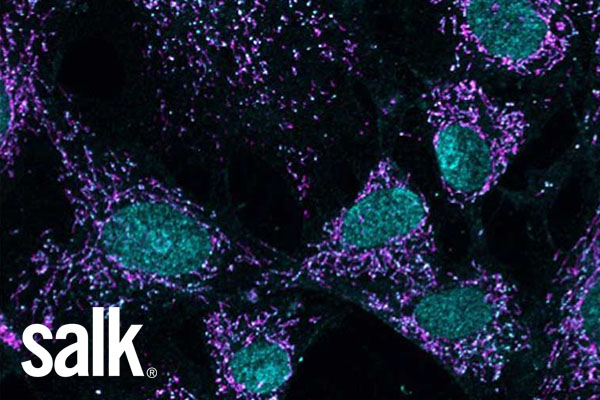BOONE, N.C. — A study published July 10 in the journal Science Signaling includes research by Appalachian State University professor Dr. Brooke Christian that examines a protein called ATM (ataxia-telangiectasia mutated) and its role in the production of antioxidants. The study has implications for a disease in which ATM is dysfunctional, as well as ways to boost cellular health overall.
The discovery of the connection between ATM and antioxidant production could lead to ways to develop new treatments for the disease ataxia-telangiectasia, a rare inherited disorder that affects the nervous system, immune system and other body systems.
The research for the article, titled “Mitochondrial redox sensing by the kinase ATM maintains cellular antioxidant capacity,” was led by Christian, assistant professor in Appalachian’s A.R. Smith Department of Chemistry, and Dr. Gerald Shadel, professor at the Salk Institute for Biological Studies, along with several collaborators. Recent Appalachian alumna Samantha Steyl ’18, who graduated in May with a Bachelor of Science in chemistry with a pre-professional and paramedical concentration, was a co-author for the study.
The study looked at the dual role ATM plays in sensing the presence of reactive oxygen species (ROS) — harmful products of normal cells that damage our bodies — and responding by triggering the production of antioxidants that counteract the damage. The research also corroborates other research suggesting that ATM responds differently to different types of cellular threats — DNA damage and ROS from mitochondria.
A summary of the study was published by the Salk Institute for Biological Studies.
Salk-led study clarifies dual role of protein that watches for cellular threats and repairs damage
About the A.R. Smith Department of Chemistry and Fermentation Sciences
The A.R. Smith Department of Chemistry and Fermentation Sciences offers a Bachelor of Arts in chemistry, a Bachelor of Science in chemistry with eight different concentrations and an interdisciplinary Bachelor of Science degree in fermentation sciences. The department’s programs prepare students to attend graduate and professional schools, as well as for employment in the pharmaceutical and fermentation industries and other business sectors. Learn more at https://dcfs.appstate.edu.
About the College of Arts and Sciences
The College of Arts and Sciences (CAS) at Appalachian State University is home to 17 academic departments, two centers and one residential college. These units span the humanities and the social, mathematical and natural sciences. CAS aims to develop a distinctive identity built upon our university's strengths, traditions and locations. The college’s values lie not only in service to the university and local community, but through inspiring, training, educating and sustaining the development of its students as global citizens. More than 6,800 student majors are enrolled in the college. As the college is also largely responsible for implementing App State’s general education curriculum, it is heavily involved in the education of all students at the university, including those pursuing majors in other colleges. Learn more at https://cas.appstate.edu.
About Appalachian State University
As a premier public institution, Appalachian State University prepares students to lead purposeful lives. App State is one of 17 campuses in the University of North Carolina System, with a national reputation for innovative teaching and opening access to a high-quality, cost-effective education. The university enrolls more than 21,000 students, has a low student-to-faculty ratio and offers more than 150 undergraduate and 80 graduate majors at its Boone and Hickory campuses and through App State Online. Learn more at https://www.appstate.edu.
What do you think?
Share your feedback on this story.





![How NCInnovation Is Rethinking Economic Development in North Carolina [faculty featured]](/_images/_posts/2026/02/rethinking-economic-development-600x400.jpg)







